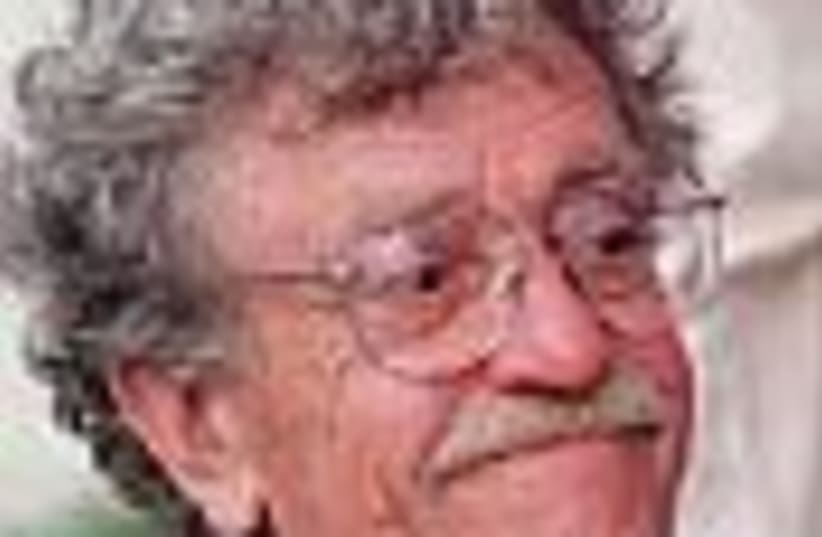Vonnegut has been holding his tongue for five years now, and his latest book, A Man without a Country, reads like the work of a man who felt he would never live long enough to see things get this bad.
"We are killing this planet as a life-support system with poisons," writes the 82-year-old novelist. "Everybody knows it, and practically nobody cares."
Americans have gotten used to political stink bombs in the past five years, but Vonnegut manages to make his critique both urgent and silly at the same time. In one breath he reminds us of "The Bomb." In the next, he strikes a different tone. "We are here on earth to fart around," Vonnegut writes. "Don't let anybody tell you any different."
No other American humorist see-saws from gravity to gobbledygook this effectively, in part because for Vonnegut the two are always connected. Life for him is deadly serious, but the best way to deal with fear is to laugh in its face.
A Man Without a Country aptly plays this scenario out in twelve short riffs on topics as diverse as sex and humanism. Each chapter arrives preceded by a silk-screen image of some aphorism by Vonnegut.
"Evolution is so creative," says one. "That is how we got giraffes." Thanks to these gnomic non-sequiturs, A Man without a Country feels a lot like a 21st-century version of The Little Prince, written for adults by a chain-smoking New Yorker with a habit of goofing off.
The best passages of A Man Without a Country deal with how Vonnegut got his funny bone, and why he feels it's the most important moral component of his body. Early on Vonnegut says it was his way of being heard at the dinner table. Later on, he says, it kept him sane.
"While we were being bombed in Dresden," he writes, "sitting in a cellar with our arms over our heads in case the ceiling fell, one soldier said, as though he were a duchess in a mansion on a cold and rainy night, 'I wonder what the poor people are doing tonight.' Nobody laughed, but we were still all glad he said it. At least we were still alive! He proved it."
Vonnegut's experience in World War II appears to have shaped everything he writes. How can the world make sense when even the good guys drop fire on a city and kill 135,000 people (mostly civilians) in one night?
"We dealt hands on with dead Germans," remembers Vonnegut, "digging them out of basements because they had suffocated there, and taking them to a huge funeral pyre. And I heard - I didn't see it done - that they gave up this procedure because it was too slow and, of course, the city was starting to smell pretty bad. And they sent in guys with flamethrowers."
Slaughterhouse Five (1968) was a triumph of the imagination's capacity to transcend these horrors. Again and again in this new book, Vonnegut instructs his readers not to neglect their own minds, to nurture them, indulge them even. The best thing one could say about this book is that it would be a great place to kick off that necessary decadence.
| More about: | The Little Prince, The New Yorker, Dresden |
